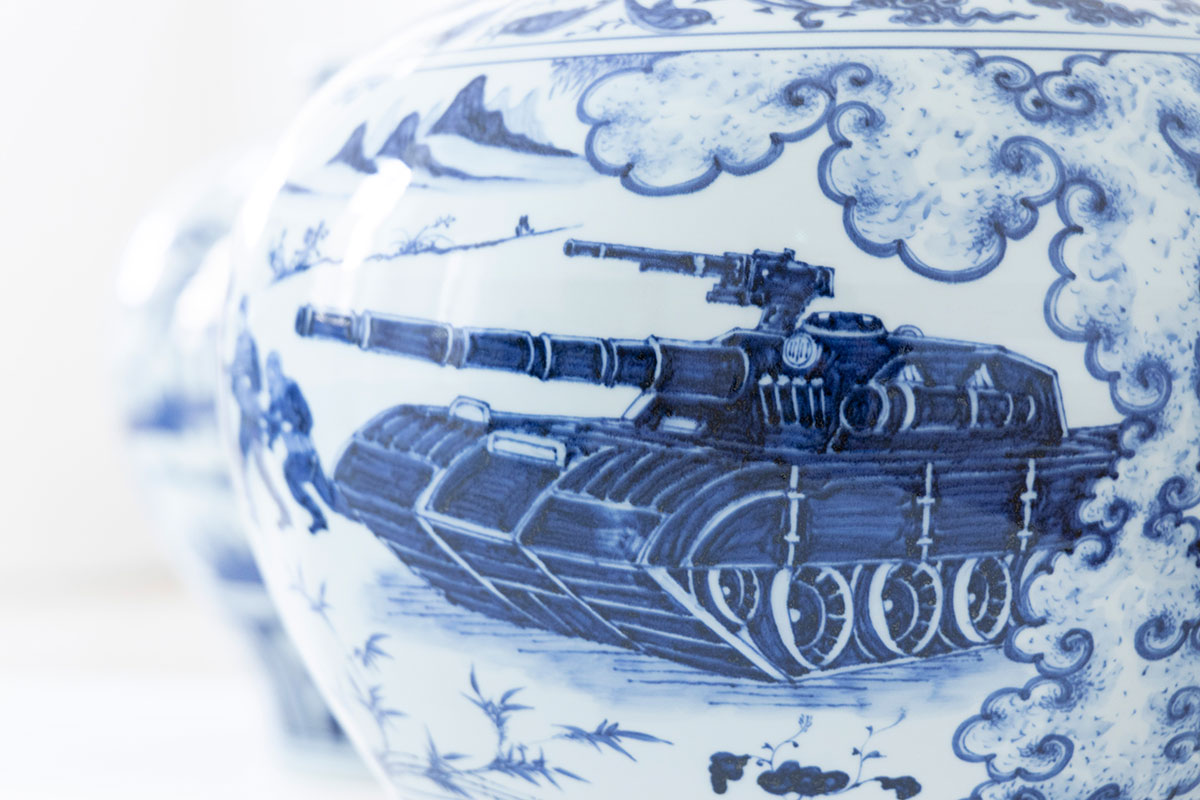ART CITIES: Rome-Ai Weiwei
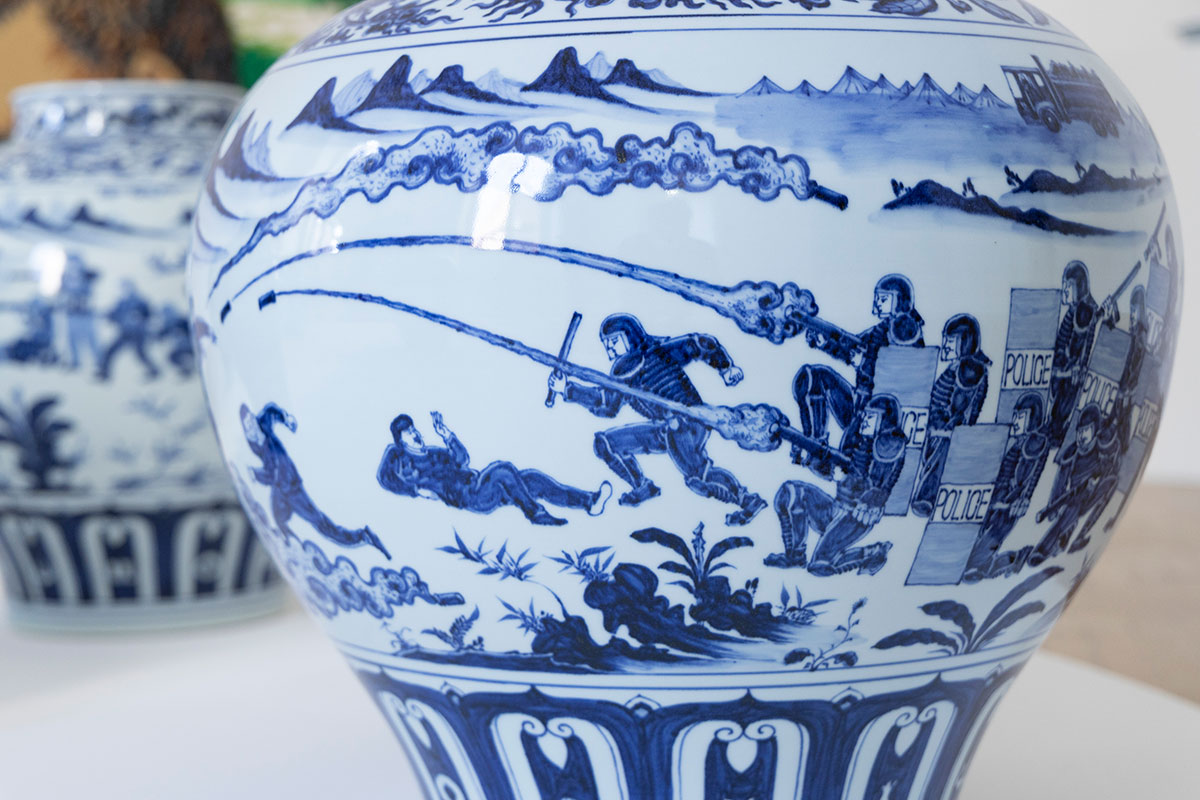 Ai Weiwei has been called the most influential artist of our time. After denouncing government corruption and lack of respect for human rights and freedom of speech in China, he was arrested, beaten, placed in isolation and forbidden to travel. His activity as a dissident has gone hand in hand with his artistic career and he has continued to produce work testifying to his political beliefs while at the same time making plenty of room for creativity and experimentation.
Ai Weiwei has been called the most influential artist of our time. After denouncing government corruption and lack of respect for human rights and freedom of speech in China, he was arrested, beaten, placed in isolation and forbidden to travel. His activity as a dissident has gone hand in hand with his artistic career and he has continued to produce work testifying to his political beliefs while at the same time making plenty of room for creativity and experimentation.
By Efi Michalarou
Photo: Galleria Continua Archive
Ai Weiwei creates a strong channel for communication and political statement that is present in a vast and diversified array of works. His reflection on the meaning of the traditions of his origins occurs frequently in his work. The exhibition “Change of Perspective”, aims to examine Ai Weiwei’s strong bond with tradition and the millenary Chinese culture which the artist respects but brings into the modern age. What characterizes the exhibition is his ability to make a desecration and a break with the past while also claiming belonging, and safeguarding the elements of authenticity of a priceless and rich culture. Ai Weiwei interprets motifs, images, metaphors, manufacturing processes and traditional materials in a playful and iconoclastic way to arrive at a – sometimes hidden, other times blatant – critique of the political system. Porcelain is traditionally regarded as the highest expressive medium in Chinese art. From the direct experience of Ai Weiwei with the workers of the Jingdezhen district – the spearhead of China in the processing of this material before the industrial revolution – a series of works have been created that make up the exhibition itinerary. Among these: “Wave Plate”, a refined porcelain plate with a gray- green celadon finish that recalls the luminous aesthetic qualities of jade. The motif of the wave that develops until it culminates in a vortex is Ai Weiwei’s homage to the art of the Yuan dynasty (1271-1368) in which water was a recurring theme; “Set of Spouts” a porcelain sculpture covered with an extraordinarily smooth, soft and thick covering of a translucent and luminous off-white color, made from broken teapot spouts. On a teapot, the spout represents the path that the steam crosses to transfer its heat to the outside, spreading comfort and consolation; nevertheless, the word “spout” (etymologically from the word “spit”) evokes the story of Ai Weiwei as a political dissident, “one who spits out controversial opinions”. Ai Weiwei dedicates part of the exhibition to some famous political dissenters of the past. It is a series of portraits made with the mosaic technique using almost ten thousand multicolored Lego bricks. The faces that come to life from this work are those of Dante Alighieri, Filippo Strozzi, Girolamo Savonarola and Galileo Galilei. Dante, the exile par excellence in Italian literary history; Filippo Strozzi, banished by the Medici family and returned to Florence after twenty years spent away from his homeland; Girolamo Savonarola, a controversial figure, considered a “martyr of freedom” in the 19th century, a troubling preacher friar, executed for his opposition to the Medici regime and for the sermons against the Church of Pope Borgia; Galileo, the revolutionary Tuscan scientist, emblem of the battle for freedom of thought, imprisoned and tried for defending his ideas. In the unrealistic colors of Lego bricks, a means of communication that the artist defines as “democratic” because everyone knows it and can use it, the faces of these characters acquire the playful character of Pop Art. The exhibition itinerary ends in the hall of The St Regis hotel where the artist takes his leave with a final poignant tribute to the power of nature and an invitation to reflect on the role of humankind in the earth’s fragile and changing natural balance. “Palace” is the result of Ai Weiwei’s collaboration with the artisans and local communities of Trancoso with whom he identified the roots and trunks of an endangered tree, the Pequi Vinagreiro, typical of the river forest of Bahia. These rare roots, some of which are more than a thousand-years-old, have been modeled and assembled to create sculptures of bold and surprising shapes. Among the marbles and crystals of the luxurious Roman hotel “Palace” disorients and enchants you, a wild “creature” that – somehow also tamed – turns into a magical vision before you.
Photo: Ai Weiwei, Blue-and-White Porcelain Vases, 2017, porcelain, 52 x 52 x 50,5 cm, 20,47 x 20,47 x 19,88 in, © Ai Weiwei, Courtesy: the artist and GALLERIA CONTINUA, Photos by: Monkeys Video Lab
Info: : Galleria Continua, Via Vittorio Emanuele Orlando 3, Rome, Italy, Duration: 25/3-7/5/2022, Days & Hours: Tue-Sat 11:00-19:00 by appointment only, www.galleriacontinua.com

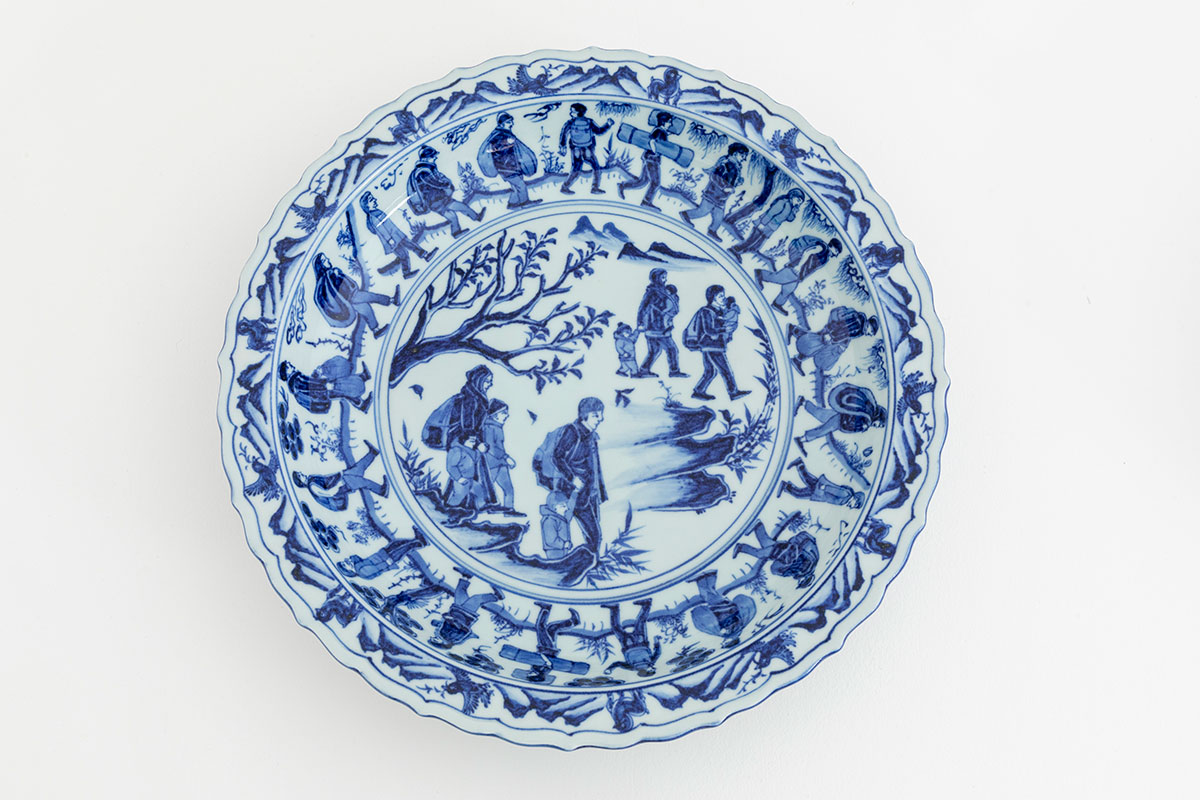
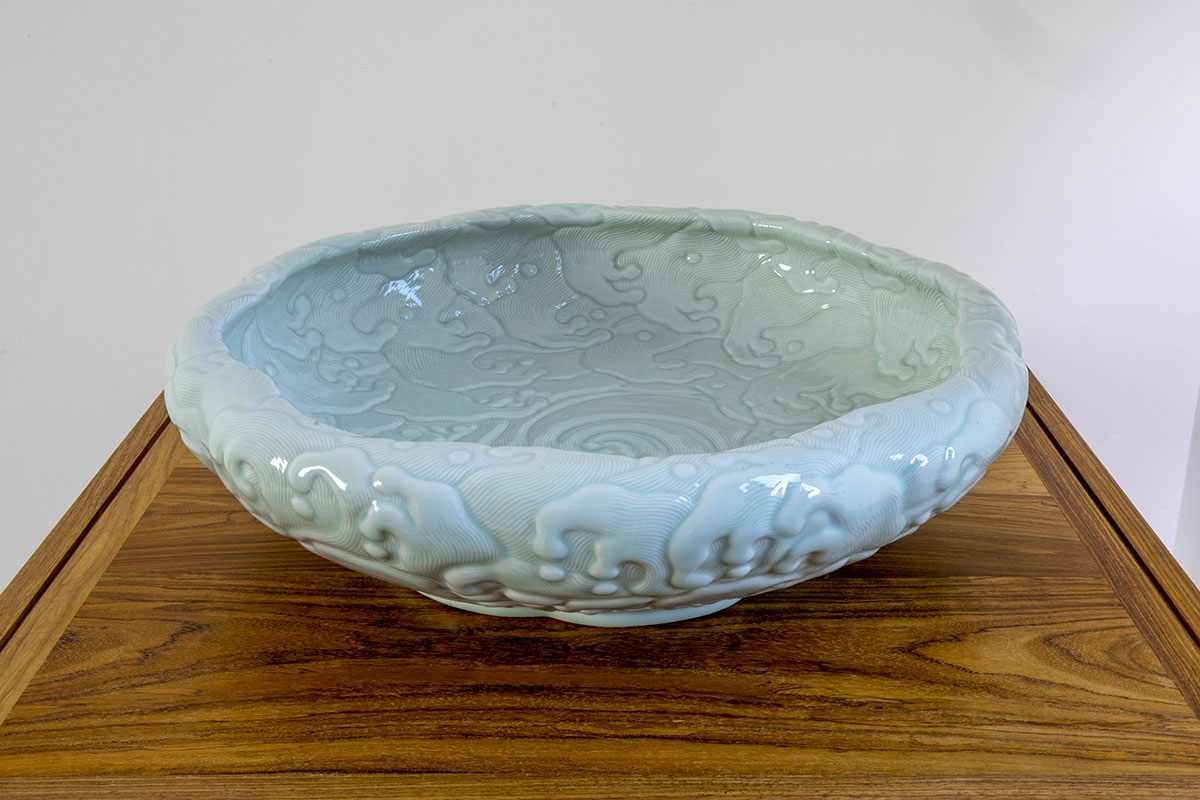
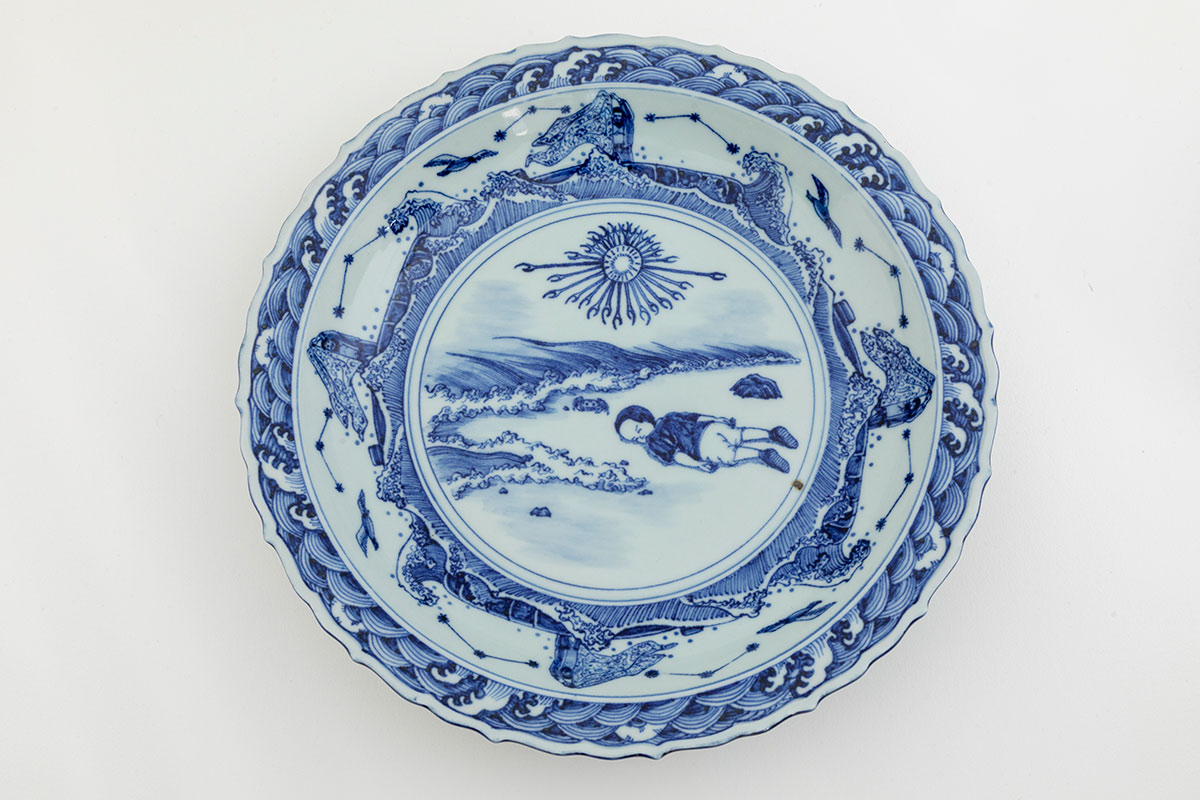

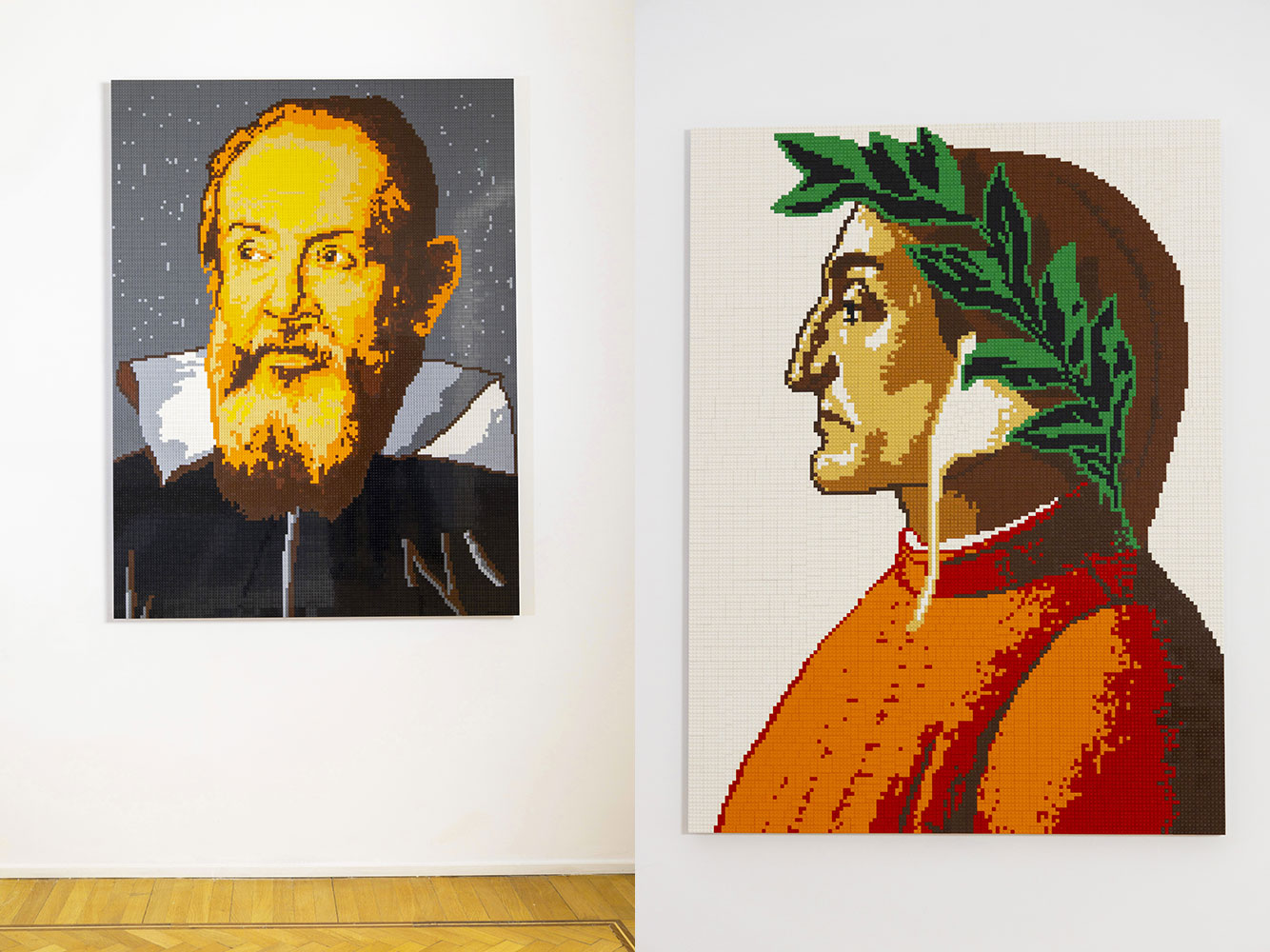
Right: Ai Weiwei, Dante Alighieri in LEGO, 2016, LEGO bricks, 114 x 152 x 1,7 cm, © Ai Weiwei, Courtesy: the artist and GALLERIA CONTINUA, Photos by: Monkeys Video Lab
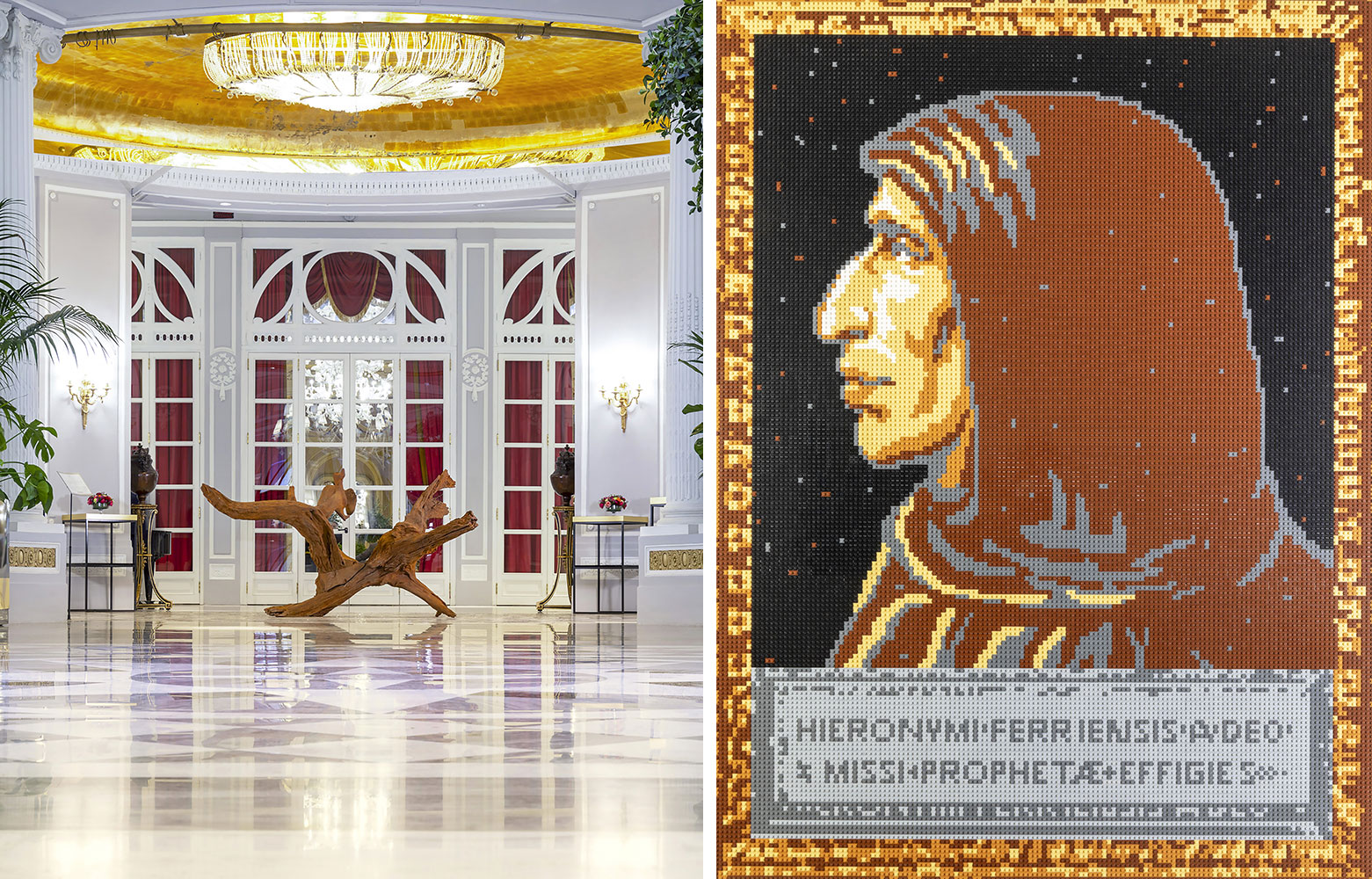
Right: Ai Weiwei, Girolamo Savonarola in LEGO, 2016, LEGO bricks, 114 x 152 x 1,7 cm, © Ai Weiwei, Courtesy: the artist and GALLERIA CONTINUA, Photos by: Monkeys Video Lab
